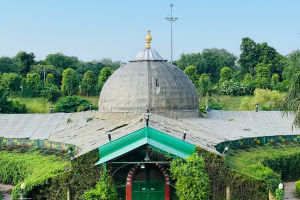Yosemite National Park is a breathtaking destination that draws millions of tourists, climbers, and nature enthusiasts from around the world.
With its iconic granite cliffs, stunning waterfalls, and diverse hiking trails, it offers something for everyone, regardless of age or ability. Over 4 million visitors come annually to experience its grandeur, with Yosemite Valley being the most popular attraction.
Dear Lykkers, the Yosemite Valley, a mile-wide and 7-mile-long canyon, is surrounded by towering granite walls and cascading waterfalls. While many focus on the Valley, there is so much more to discover in the park’s vast landscape.
Location and General Information
Location: California, USA
Native Land: Ahwahneechee
Size: 748,436 acres (3,028.8 sq km)
Annual Visitors: 4.1 million (2018)
Established: Federal protection (1864); National Park (1890)
Visitor Centers: Yosemite Valley (year-round), Wawona, Big Oak Flats (May–October), Tuolumne Meadows (June–September)
Entrance Fee: $30 per vehicle; $15 per individual
When to Visit Yosemite National Park
Yosemite can be visited year-round, but the experience varies significantly depending on the season.
Spring: Flowing waterfalls make spring a stunning time to visit.
Summer: Perfect for hiking and accessing snow-free trails.
Autumn: A photographer’s paradise with changing foliage.
Winter: Brings peace and tranquility to the usually bustling park.
For hiking enthusiasts, late spring through early autumn is ideal for accessing trails without snow, especially at higher elevations. Some roads, like Glacier Pass Road and Tioga Road, close in winter due to snow.
Most Iconic View in Yosemite National Park
Tunnel View: One of the most famous vistas, Tunnel View offers a panoramic scene as you exit the Wawona Tunnel. This overlook showcases Half Dome, Bridalveil Falls, El Capitan, and the stunning Yosemite Valley. It's a perfect spot for photos and enjoying Yosemite's beauty.
Fun Fact: El Capitan is the largest exposed granite monolith in the world, rising over 3,700 feet above the valley floor. With binoculars, climbers can often be spotted scaling its face, sometimes camping overnight on the rock face.
Must-Do “Easy” Yosemite Activities
Drive the Valley Floor Loop: Explore Yosemite’s iconic sights, including Yosemite Falls, El Capitan Meadow, Sentinel Bridge, and Valley View, all from the comfort of your car. Bicycles and walking routes are also available to avoid traffic.
Tioga Road: A scenic drive through Yosemite’s high country with overlooks like Olmsted Point, Tenaya Lake, and Tuolumne Meadow.
Mariposa Grove: Home to over 500 giant sequoias, this area offers trails for all levels, including the easy Big Trees Loop and the moderate Grizzly Giant Loop.
Visit Glacier Point: Accessible via a short paved trail, Glacier Point offers panoramic views of Half Dome, Nevada Falls, and the valley floor.
Best Yosemite Hiking Trails
Yosemite’s hiking trails cater to all levels, from short walks to challenging treks. Popular trails include:
Lower Yosemite Falls: 0.5 miles
Bridalveil Fall Trail: 1.2 miles roundtrip
Mirror Lake: 2.4 miles with shuttle access
Inspiration Point: 2.6 miles
The Mist Trail: 7 miles roundtrip
Cathedral Lakes: 8 miles roundtrip
Four-Mile Trail: 9.4 miles roundtrip
Clouds Rest: 14.5 miles roundtrip
For the Adventurous Yosemite Explorer
Half Dome Summit: A challenging yet rewarding adventure. Permits are required for the 14-16.5-mile roundtrip hike. Metal cables assist climbers on steep sections. Gloves are recommended for comfort and safety.
Backcountry Camping: For a more immersive experience, consider camping in Yosemite’s backcountry. Popular spots include Upper Cathedral Lake and Sunrise Lakes. Guided multi-day camping trips are also available.
Where to Stay in Yosemite
Yosemite offers accommodations ranging from luxurious lodges to simple campgrounds.
Hotels and Lodges:
The Ahwahnee Hotel: Known for its historic charm and stunning location.
Curry Village: Offers a mix of tent cabins and standard rooms.
Yosemite Valley Lodge: Conveniently located near major attractions.
Wawona Hotel: A vintage retreat with modern amenities.
Backcountry Camping: High Sierra Camps offer remote accommodations accessible only by hiking, providing a unique wilderness experience.


